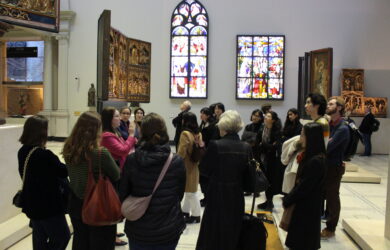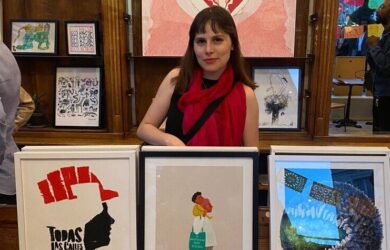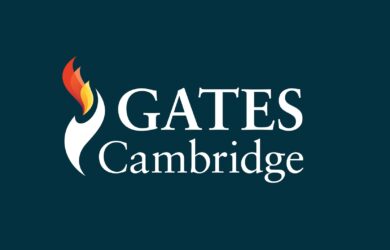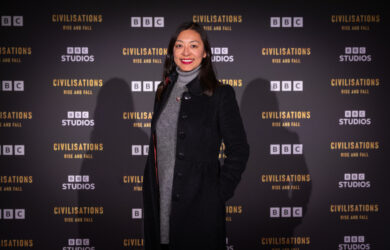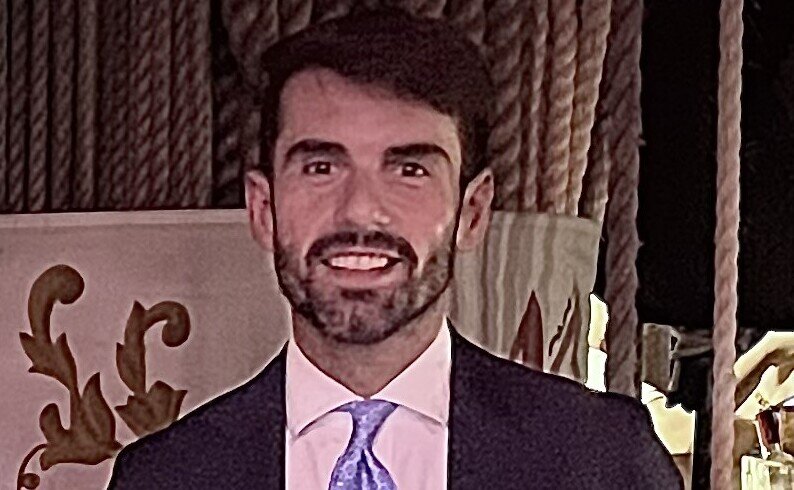
Luca di Mario talks about his role at the Asian Development Bank helping to address the waste management challenge
Thanks to my master’s and then my PhD at Cambridge the whole world was opened up for me
Luca di Mario
Luca Di Mario’s PhD in Engineering focused on sustainable business models for turning solid waste and waste water in developing countries into a useful resource, such as energy.
That work has stood him in good stead for his work at the Asian Development Bank where he is currently Senior Advisor to the Vice President for Finance and Risk Management after several years working on the ground on urban development projects in the region.
Luca’s career path towards the ADB began before he finished his PhD when he did an internship there, working on an assignment that was aligned to his PhD topic. He found himself in the Philippines for three months and got to know the ADB well.
After finishing his PhD he did some consultancy work with the World Health Organization in Peru, Senegal and Jordan, working on building the methodology to track the Sustainable Development Goals 6.2 and 6.3 (sanitation and waste water). But his sights were set on the ADB.
Asian Development Bank
Luca [2009] applied for their young professionals programme and started in October 2016, having completed his PhD in March. Usually it’s a three-year programme where participants rotate between corporate work and operations. However, Luca started working in operations on urban water projects in South Asia, mainly in India, the Maldives, Bangladesh and Bhutan, which was a perfect match for him so he stayed.
In 2020 at the height of the Covid pandemic, he had his first project as team leader approved. This was to establish a sustainable regional solid waste management system, including a waste-to-energy facility, for the Greater Malé area and neighbouring outer islands in the Maldives.
One of the challenges was the lack of sufficient land to manage solid waste. Another was the impact of climate change, given the Maldives are so low lying in the water and more frequent and higher intensity extreme weather events are becoming more common on top of sea level rise.
To get around the climate change challenge, the project managers had to consider raising the level of the plant and design elements that would ensure system resiliency, such as continuity in the mechanical and electrical equipment in case of flooding.
No-one left behind
After the Maldives, Luca was assigned as team leader of a water supply project in Bhutan, which was approved in 2022, and then he moved on to another in Bangladesh on water supply, sanitation and solid waste management.
Luca states that working for a multilateral development bank like the ADB is not only about providing finance to developing countries but supporting the bank’s clients with innovative solutions, knowledge, and capacity building to address increasing development challenges, which are exacerbated by climate change.
It also means ensuring that no-one is left behind, especially the most vulnerable members of society such as women, children, or people with a disability, and that environmental and social safeguards are met because these are critical to ensure sustainable development and poverty reduction. Finally, says Luca, “it is not just about building a project or a facility but ensuring it is sustainable and can operate or provide benefits in the long term.”
Senior Advisor
Luca says he has been fortunate that there has been a lot of continuity in his career since Cambridge and he has been able to build on the knowledge of urban infrastructure relating to water and solid waste that he gained in his PhD. But in 2022, he got an offer to work for and support a Vice President of the ADB, as her Senior Advisor. “It was a completely new area for me because most of the work involves looking at the corporate side rather than the operational one.” He adds that the role has given him the opportunity to broaden his view and understanding of the bank and the broader development agenda.
He says: “In operations you are very focused on your projects and solving day-to-day challenges. Stepping out of that and going into a management support position was actually very interesting because now I can have a very good bird’s eye view of the bank and understand better the details of our business model, what the evolving strategic issues are and how we support the multilateral development banks reform agenda and high-level dialogue and collaboration.
Luca, who is based in the Philippines, still keeps in touch with his projects and does some peer reviewing of urban projects. He thinks that after his assignment with the VP he will return to an operational role either in HQ or at a resident mission.
Improving the lives of others
He still pinches himself about how far he has come from the small rural town in Italy that he grew up in, the son of an English teacher and bank worker. “What I am doing was unimaginable really,” he says. “When I did my undergraduate course in Engineering in Italy, the maximum aspiration was to become a water engineer in a local public utility. Thanks to my master’s and then my PhD at Cambridge the whole world was opened up for me.”
He adds that he is still in touch with some Gates Cambridge Scholars and that he welcomes more contact. He says: “What you know with Gates Cambridge Scholars is that they will really be doing something important. No-one on their own can change the world, but they can contribute a vital small piece towards making it a bit better and improving other people’s lives.”








